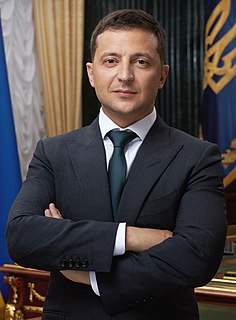A Quote by Volodymyr Zelensky
People don't really believe in words. Or rather, people believe in words only for a stretch of time. Then they start to look for action.
Related Quotes
Sticks and stones may break my bones, but words can never hurt me." The adage is true as long as you don't really believe the words. But if your whole upbringing, and everything you have ever been told by parents, teachers and priests, has led you to believe, really believe, utterly and completely, that sinners burn in hell (or some other obnoxious article of doctrine such as that a woman is the property of her husband), it is entirely plausible that words could have a more long-lasting and damaging effect than deeds.
When you start trying to figure out what you're the best at, that's when you become delusional because you start to believe that. [you're the best] I'd rather continue to ride that mule than to ride the cocky horse. You see people spin out of control like that all the time. Those are the most tragic stories – the most gifted people who start to believe that it's really ALL THEM. It's not all you. It can't be all you. Just like you need air to fly a kite. It's not the KITE – it's the AIR.
I believe in love. I believe in hard times and love winning. I believe marriage is hard. I believe people make mistakes. I believe people can want two things at once. I believe people are selfish and generous at the same time. I believe very few people want to hurt others. I believe that you can be surprised by life. I believe in happy endings.
Narcissism, like the other personality disorders, is a condition that's known as ego-syntonic. In other words, the paranoid person really does believe that people are after him, and the narcissist really does believe that he or she is better than or more entitled than other people, and truly doesn't see why that's not the case.
Consider this: there is not a single word in [the Sermon on the Mount] about what to believe, only words about what to do. It is a behavioral manifesto, not a propositional one. Yet three centuries later, when the Nicene Creed became the official oath of Christendom, there was not a single word in it about what to do, only words about what to believe!


































